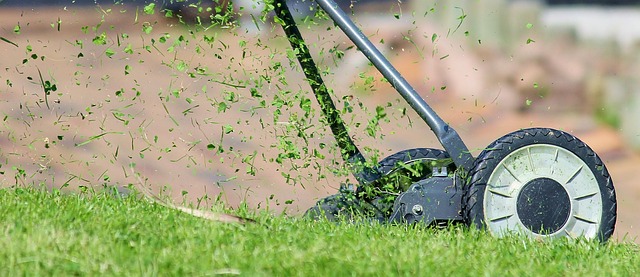Effective Ways to Remove Weeds from Your Lawn Safely
You don’t need toxic weed killers to maintain a beautiful lawn. Learn what kills weeds but not grass naturally using DIY sprays, household staples, and smart mowing habits. These techniques support healthy growth while eliminating unwanted plants in your lawn.

What are the most common types of lawn weeds?
Before diving into removal techniques, it’s essential to identify the most prevalent weeds in your lawn. Common lawn invaders include dandelions, clover, crabgrass, and plantain. Each weed type may require slightly different approaches for effective removal. Dandelions, for instance, have deep taproots that need to be completely removed, while clover spreads through runners and can be more challenging to eradicate. Understanding the specific weeds in your lawn will help you tailor your removal strategy for better results.
How can boiling water be used for weed control?
One of the simplest and most cost-effective methods for safe and natural weed removal is using boiling water. This technique is particularly effective for weeds growing in cracks in driveways or walkways. Simply pour boiling water directly onto the weed, making sure to saturate the plant and the surrounding soil. The heat will kill the weed down to its roots. However, be cautious when using this method near desired plants, as boiling water will kill any vegetation it comes into contact with. For larger lawn areas, this method may be impractical but can be useful for spot treatments.
What household items can be used to make DIY weed killers?
Several common household items can be repurposed to create effective, non-toxic weed control solutions. Vinegar, for example, is a popular base for homemade weed killers. Mix one gallon of white vinegar with one cup of table salt and a tablespoon of liquid dish soap. This solution works by drying out the weeds and disrupting their growth. Another option is to use cornmeal gluten, which acts as a natural pre-emergent herbicide. Sprinkle it on your lawn in early spring to prevent weed seeds from germinating while allowing grass to grow normally.
How can proper mowing techniques prevent weed growth?
Maintaining a healthy lawn through proper mowing practices is one of the best ways to prevent weed growth naturally. Set your mower blade to a higher setting, typically between 2.5 to 3.5 inches, depending on your grass type. Taller grass shades the soil, preventing weed seeds from receiving the sunlight they need to germinate. Additionally, mow frequently enough to remove only one-third of the grass blade length at a time. This practice encourages stronger, deeper root growth, which helps your lawn outcompete weeds for nutrients and water.
What are some unique weed control methods in the UK?
In the United Kingdom, gardeners have developed some innovative approaches to weed control that align with the country’s focus on sustainable gardening practices. One popular method is the use of copper tools for weeding. Copper-bladed tools are believed to leave trace amounts of copper in the soil, which can deter weed growth. Another unique approach gaining traction is the use of living mulches, such as low-growing clover varieties, which outcompete weeds while adding nitrogen to the soil. These methods not only keep lawns beautiful with non-toxic weed control but also contribute to overall soil health.
Which natural weed control products are most effective?
For those seeking ready-made solutions, several natural weed control products have proven effective in maintaining weed-free lawns. Here’s a comparison of some popular options available in the UK:
| Product Name | Main Ingredients | Application Method | Effectiveness |
|---|---|---|---|
| EcoSense Weed B Gon | Acetic acid, Citric acid | Spray | High |
| Weedol Rootkill Plus | Glyphosate-free formula | Ready-to-use spray | Medium to High |
| Neudorff Superfast Weed Killer | Pelargonic acid | Concentrate (dilute before use) | High |
| Westland Resolva Natural Power Bug & Weed Killer | Natural plant oils | Ready-to-use spray | Medium |
| RHS Glyphosate-Free Weed Killer | Acetic acid | Ready-to-use spray | Medium to High |
Prices, rates, or cost estimates mentioned in this article are based on the latest available information but may change over time. Independent research is advised before making financial decisions.
These products offer varying levels of effectiveness and ease of use. While they may be more expensive than homemade solutions, they provide a convenient option for those looking for ready-to-use natural weed control methods.
In conclusion, maintaining a weed-free lawn doesn’t require harmful chemicals or expensive treatments. By employing a combination of preventive measures, natural remedies, and eco-friendly products, you can effectively remove weeds from your lawn safely. These methods not only keep your grass healthy but also contribute to a more sustainable and environmentally friendly approach to lawn care.




